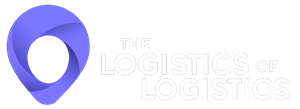“Transportation expense can cost 5%-10% of gross revenue and will be going up if not managed effectively.” -Bill Driscoll
Transportation cost drains drive up costs. Many companies are experiencing dramatic increases in transportation expense that have turned into cash and quality drains for their organization. Savvy financial managers know transportation cost can cost 5%-10% of gross revenue and will be going up if not managed effectively. In addition companies are being required to find ways to improve the quality delivery services in order to hold off competitors. If you are interested in opportunities to solve these problems, and associated issues you must first understand them.
Transportation Cost Drain #1 – Fuel Prices
Fuel prices continue to fluctuate due to economic conditions. Although today, diesel prices are down, just within the past year we have seen them hit almost $5.00 per gallon. Carriers address this through fuel surcharges, but it is difficult for transportation managers to know if surcharges are fair or excessive. It is very important to manage this process.
For example, do you know how your carrier assesses its surcharge, or how it is calculated. Do you know their multiplier? Do they follow DOE guidelines? Is your carrier using the surcharge to compensate for low rates? Will you be ready if and when fuel prices go?
Transportation Cost Drain #2 – Freight Rates
Freight rates are a direct line item cost and many companies have experienced rate increase in addition to surcharges. Despite current economic conditions, carriers attempt to increase rates. Could your carriers be using the price of oil to justify increases? Are they using FSC to offset their inability to get increases. Have both LTL and TL rates increased? Did the carrier implement the increase or negotiate the increase?
Transportation Cost Drain #3 – Assessorial Charges
Assessorial charges are often used to increase cost without increasing a rate. Do you know what the carrier is charging for added services? Do you know what the services are? Do they give you advanced notice?
Transportation Cost Drain #4 – Supplier Shipping Terms
Supplier shipping terms are often under scrutinized because of the potential conflict with the buyer, purchasing department or vendor. Freight terms are negotiable. What freight terms have been agreed too? Is your supplier taking advantage of your freight volume for better rates? Are they being passed along to you? Is you supplier making a profit on your freight by adding a fee?
Transportation Cost Drain #5 – Shipment Distribution
Shipment distribution is another problematic area when companies add products to their services and do not review its impact on shipments leaving their facilities. Shipment size, traffic lanes, total shipment configuration, density and cubic volume change dynamically over time. These factors require periodic review to determine the impact on pricing.
Each of the items referenced above contribute to expenses affecting profit. If these critical elements of transportation are not regularly addressed, they will drain cash. In addition to these direct cash drains, there are also indirect cash drains that need to be addressed in order to establish a world class network.
Transportation Cost Drain #7 – Relationship with Transportation Partners
How do you treat your transportation partner? Do you help each other control expenses or simply offer them the opportunity to haul freight? What are payment terms? Are they adhered too? Are they reviewed regularly?
Transportation Cost Drain #7 – Internal Escalation Process
What is the internal shipment escalation process? Are all customers treated the same? Under what conditions and who authorizes airfreight? Does the authorizing party have accountability for transportation expense?
Transportation Cost Drain #8 – Carrier Load Acceptance
Carrier load acceptance is also critical to cost management. If carriers are turning loads down, making late pick-ups or late deliveries, you could be spending cash to correct.
Transportation Cost Drain #9 – Rail Utilization
Have rail conditions or consolidations impacted you? Have you considered using rail to manage cost? Has rail failed your company? Do you know how to use rail effectively?
Transportation Cost Drain #10 – International Shipping
If you are an international shipper, you are certainly affected by port capacity and other port conditions. Work stoppages at a port or internal issues, such as the LA port strike can be very costly. Is your company impacted by security or Homeland Security regulations?
Finally, do you have a signed carrier agreement (contract) in place to protect your rates and service?
All of the issues referenced above impact cost, but issues 3 through 10 also impact the quality of the service provided.
Other Transportation Cost Drains
Some other transportation cost drains: Sarbanes-Oxley, freight claims, dock congestion, order flow, customer requirements, service policies, company strategic imperatives, customer prioritization, inventory stocking policies, inventory deployment strategies, inter-company transfers, substitutions, obsolescence policies, technology capabilities and finally external and internal communications with transportation carriers.
In summary, many companies have considerable financial exposure regarding transportation both in cost, profit and customer retention, Typically, they have difficulty addressing these challenges due to service distractions fighting fires and lack the time, resources or expertise, It is important to know there are companies who have the expertise to identify potential solutions to these problems and you may be surprised at the small relative size of the cost for these services in proportion to the costs.
About the Author
Bill Driscoll founded DLW Solutions in 2000. Bill and his team engage as supply chain consultants helping manufacturers, distributors and others improve their supply chain. Mr. Driscoll has served in senior leadership roles in retail organizations, third party logistics companies and trucking companies to provide the background to offer consulting services. He is a transportation and warehousing professional with over 30 years industry experience.
Contact Bill Driscoll at DLW Solutions via phone 630-854-7017 or by email: [email protected].

